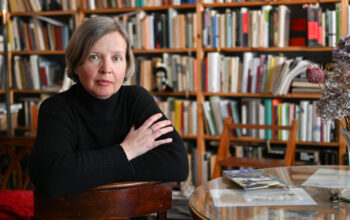
Image and reality
Breyer has made it clear that he does not want to be seen as a liberal justice or a Democratic appointee. He would prefer that people think of him as an impartial judge. The court’s authority, he said in a speech last year, depends on “a trust that the court is guided by legal principle, not politics.”
Other justices have made similar arguments. “We do not have Obama judges or Trump judges, Bush judges or Clinton judges,” Chief Justice John Roberts said in 2018. Barrett put it bluntly last year: “This court is not comprised of a bunch of partisan hacks.”
That is a fair description of the justices’ rulings on many cases. Unanimous verdicts and heterodox coalitions of justices are common, especially in technical cases that receive little attention outside legal circles. Sometimes, it’s also true on high-profile cases, such as recent ones on Obamacare and L.G.B.T.Q. rights.
But on many of the closely watched cases that shape daily life in the U.S., the justices do split along ideological lines, especially in recent years. On abortion, guns, labor unions, corporate regulation, gerrymandering, campaign finance and voting rights, the best way to predict the justices’ votes is to know whether a Democratic or Republican president appointed them. The court can often resemble a kind of super-legislature, despite the protestations of Breyer and his colleagues.
For that reason, his retirement is likely to have only a modest effect on major upcoming cases. One Democrat — Bill Clinton — nominated Breyer, and another Democrat — Joe Biden — will replace him. Breyer’s successor may be somewhat more liberal than him, a reflection of the Democratic Party’s shift since Clinton’s presidency. But any such difference will matter little in most cases.
The biggest impact of Breyer’s retirement is the situation that it prevents (assuming, of course, that the Democratic-controlled Senate confirms Biden’s nominee). His departure means that Breyer has not followed the pattern of Ginsburg, Brennan, Marshall and Warren. Breyer will never be the liberal icon each of them is, but he has managed to uphold liberal ideals — the ideals he and they have shared — in the closing chapter of his public life.



